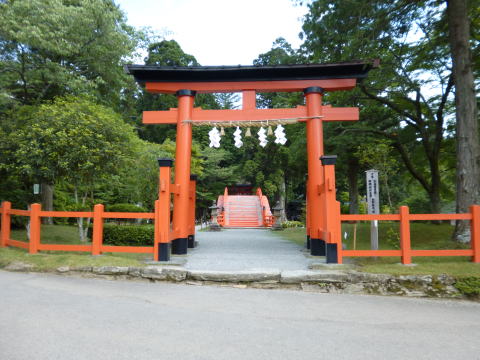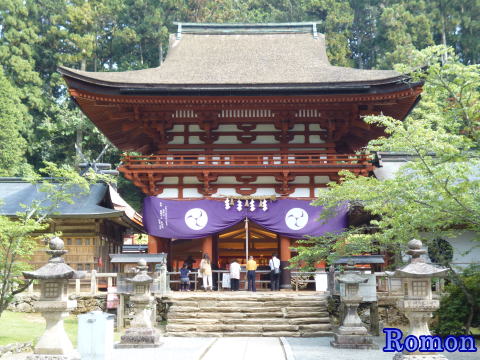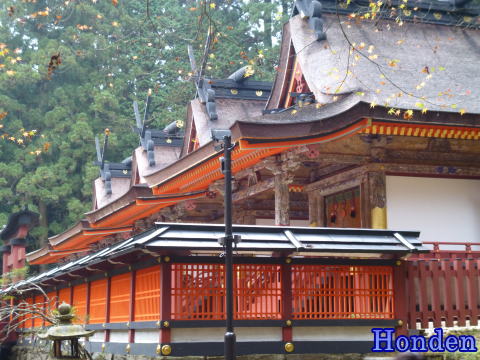![]()
Niutsuhime-jinja is located at Katsuragi Town in Wakayama Prefecture.
Niutsuhime-jinja is dedicated to the deity of the land of the northwestern
area
of Kii Mountain Range, including Koyasan.
The shrine first appeared in historical documents in 855, and its religious
origin is said to date back to much earlier times.
Its chief deities are Niutsuhime-okami,Takanomikono-okami.
Those two deities are also called Niumyojin and Koyamyojin.
According to legend, when Kukai was looking for the land for the construction of the Kongobuji, they gave the land to him and guided him, respectively.
The Koyamyojin appeared as a hunter with two dogs and guided Kukai to the
site of Kongobuji.
The Niumyojin and Koyamyojin are worshiped in Kongobuji as the guardian
deities.
In 1208,the shrine started to worship two other deities from Kehi of Tsuruga
no kuni (Fukui Prefecture) and Itsukushima of Aki no kuni (Hiroshima Prefecture).
Those deities are called Ogetsuhimeno-okami,Ichikishimahimeno-okami.
Since then, the shrine came to be revered for the quadruple deities of
Koya, collectively Shishomyujin.
The Niutsuhime-jinja Honden (shrine's main building) consists of four shrine
buildings dedicated to Shishomyojin.
The second hall and the fourth hall were reconstructed in 1469 and the
first hall and the third hall were reconstructed in 1715 and in 1901, respectively.
However, the small shrine called Kuden, installed in each of the four shrine
buildings to enshrine the object of the worship, is the original construction
dating back to 1306.
As a Kasuga-style shrine building, the first building is the largest in
Japan.
The Niutsuhime-jinja Romon (shrine's gate) is located at the front of the
Honden.
The existing building is a 1499 reconstruction.
Judging from a late 13th century picture in which the gate is drawn as
an eight-pillar structure, the gate underwent a structural development
into the present two-storied Romon structure.
The Honden and the Romon buildings are designated as Important Cultural
Properties.
The Niutsuhime-jinja was designated as World Heritage in 2004.
From Kaseda station of the JR Wakayama line, it takes about 30 minutes
by the Katsuragi Community Bus.(Y.N)


